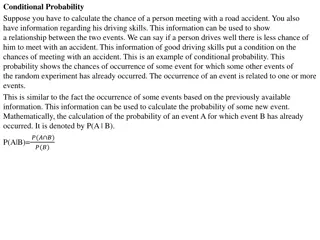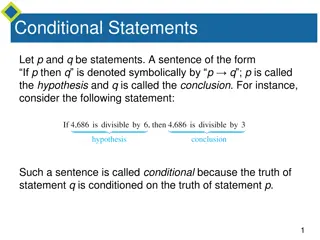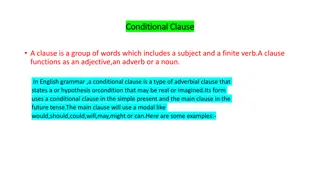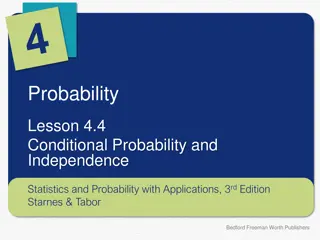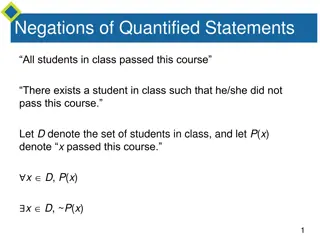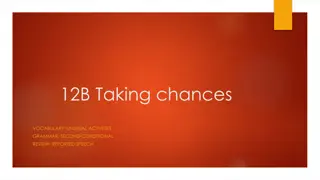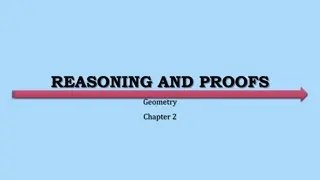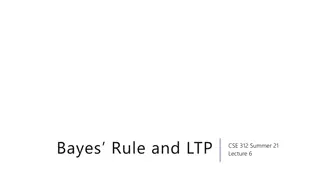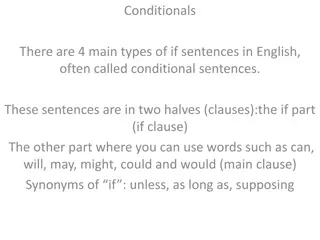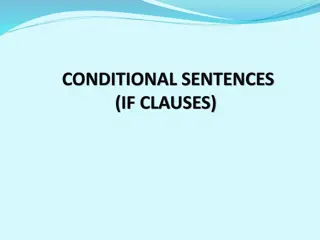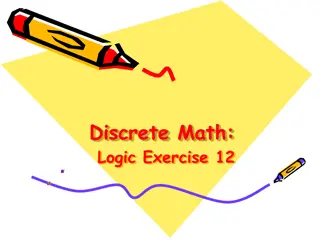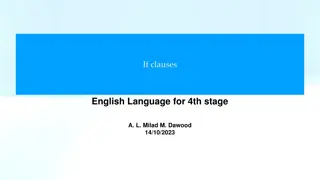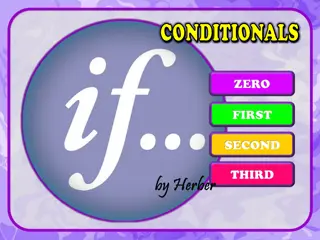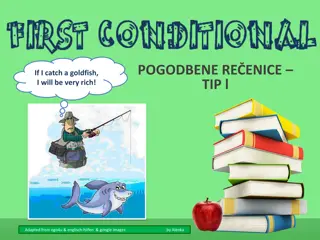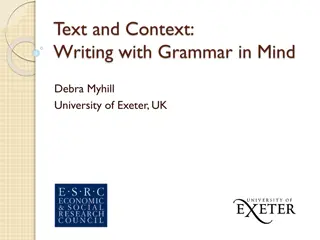Understanding the Second Conditional in English Grammar
The second conditional in English grammar is used to talk about unlikely or impossible situations in the present or future. It involves using 'if' followed by the past simple, 'would', and the infinitive. This type of conditional is different from the first conditional as it deals with less likely scenarios. Learn how to form and use the second conditional with examples and explanations of using 'were' instead of 'was' in subjunctive mood sentences.
Download Presentation

Please find below an Image/Link to download the presentation.
The content on the website is provided AS IS for your information and personal use only. It may not be sold, licensed, or shared on other websites without obtaining consent from the author. Download presentation by click this link. If you encounter any issues during the download, it is possible that the publisher has removed the file from their server.
E N D
Presentation Transcript
THE SECOND CONDITIONAL Bisera Alili
Second conditional The second conditional uses the past simple after if, then 'would' and the infinitive: if + past simple, ...would + infinitive
First, we can use it to talk about things in the future that are probably not going to be true. Maybe I'm imagining some dream for example. If I won the lottery, I would buy a big house.(I probably won't win the lottery) If I met the Queen of England, I would say hello. She would travel all over the world if she were rich. She would pass the exam if she ever studied.(She never studies, so this won't happen)
Second, we can use it to talk about something in the present which is impossible, because it's not true. Have a look at the examples: If I had his number, I would call him. (I don't have his number now, so it's impossible for me to call him). If I were you, I wouldn't go out with that man.
How is this different from the first conditional? This kind of conditional sentence is different from the first conditional because this is a lot more unlikely. For example (second conditional): 1. If I had enough money I would buy a house with twenty bedrooms and a swimming pool. (I'm probably not going to have this much money, it's just a dream, not very real) But (first conditional): 1.If I have enough money, I'll buy some new shoes (It's much more likely that I'll have enough money to buy some shoes)
IF I WERE ... Note that with the verb To Be we use IF + I / HE / SHE / IT + WERE The reason we use WERE instead of WAS is because the sentence is in the Subjunctive mood. If I were not in debt, I would quit my job. If he were taller, he'd be accepted into the team. She would still be correcting my grammar if she were still alive. Though in informal English, you will hear some people say If I was... If he was... etc. This usage doesn't sound good though unfortunately is common.
COULD IN SECOND CONDITIONAL SENTENCES COULD can be used instead of WOULD to make the hypothetical present or future more likely. If he trained every day, he could represent his country If I had a little more money, I could buy a car.
Notice that we are thinking about a future condition. We use the Past Simple tense to talk about the future condition. We use would + base verb to talk about the future result. The important thing about the second conditional is that there is an unreal possibility that the condition will happen Look at these example sentences: if condition result Past Simple would + base verb If I married Mary, I would be happy. If Ram became rich, she would marry him. If it snowed next July, would you be surprised? If it snowed next July, what would you do?
result if condition would + base verb Past Simple I would be happy if I married Mary. She would marry Ram if he became rich. Would you be surprised if it snowed next July? What would you do if it snowed next July?
Second conditionals exercises. Complete the following sentences with the words in brackets. 1. What would you do if you suddenly (win)______ half a million pounds? 2. If he (get up)_______up earlier, he'd get to work on time. 3. If we (have)_______ more time, I could tell you more about it. 4. If you (sell)________ more products, you'd earn more money. 5. I could help you if you (trust)_______ me more. 6. His car would be a lot safer if he (buy)_______ some new tires. 7. The children could be better swimmers if they (go)________ swimming more frequently. 8. I wouldn't mind having children if we (live)______ in the country. 9. If I (be)_______ you, I wouldn't worry about going to university. 10. If I (have)________ any money, I'd give you some. 11. Your parents (be)_______ a lot happier if you phoned them more often.



